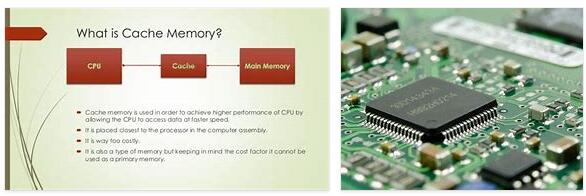What is cache?
Definition: A cache is usually any type of intermediate storage (or “buffer storage”), for example on the PC, a browser or server. This type of buffer enables faster access to data that is called up frequently or at short notice (e.g. login data) without this data having to be reloaded each time it is called up. This process of saving often runs in the background and is not noticed by the user.
Cache in the browser
A browser’s cache is usually a fast and large memory that stores the basic content of a website on the computer. The user cannot easily see which content the cache is holding. The cache is, so to speak, the short-term memory of a browser. The computer can access it faster than the regular working memory (RAM).
An example: You visit a website with extensive page content. Your browser, e.g. Firefox, Opera or Safari, saves some of the main content of the website on your computer or smartphone. If you return to the website at a later point in time or in a new session, the browser loads the stored content. The website builds up faster and the loading time is shortened.
Cache on search engines like Google
According to aviationopedia, a search engine like Google also has a cache for its SERPs. This fulfills various functions. The search engine temporarily stores the content of all web pages that come into consideration for queries from search engine users. Using an index in the cache memory, the search engine server searches for the most suitable and up-to-date web content that is suitable for answering the search query. Only in this way can the search engine guarantee that it will display relevant results for user input in a fraction of a second.
Searching for information by crawlers
A crawler takes over the independent search for content on the Internet. A website is regularly crawled by Google. At Google, this web crawler frequency is usually between one and four weeks. After each crawl, Google saves the status of the website in the cache. If your page is temporarily unavailable (e.g. due to a server error or an error in the CMS), the version saved in the cache is displayed. This version can be called up in the SERPs by clicking on the green triangle next to the URL:
Importance of the cache for search engine optimization
Caching has disadvantages for websites that are updated very often. Here there is the option of preventing caching using the meta tag “No-Cache” in the website code. A website can also give the crawler an indication of how often changes generally take place.
Alternatively, a website owner who recently made changes to their web pages can report them to Google. Soon a web crawler will read the content again and update it in the cache.
The information that is provided from the cache via a website often shows whether the search engine operator has made changes to your algorithm. Search engine optimizers can take the findings from this into account when further optimizing the website.
When should you clear the cache?
After a certain period of time, the cache of a browser, program or server may store too much information. This can slow down the computer or smartphone. In this case it is worth clearing the cache memory. Once you have cleared your cache, you must be prepared to log in again on all the pages you have visited. If you want to make your traces in the browser unrecognizable to a certain extent, you should also delete your cache regularly.



